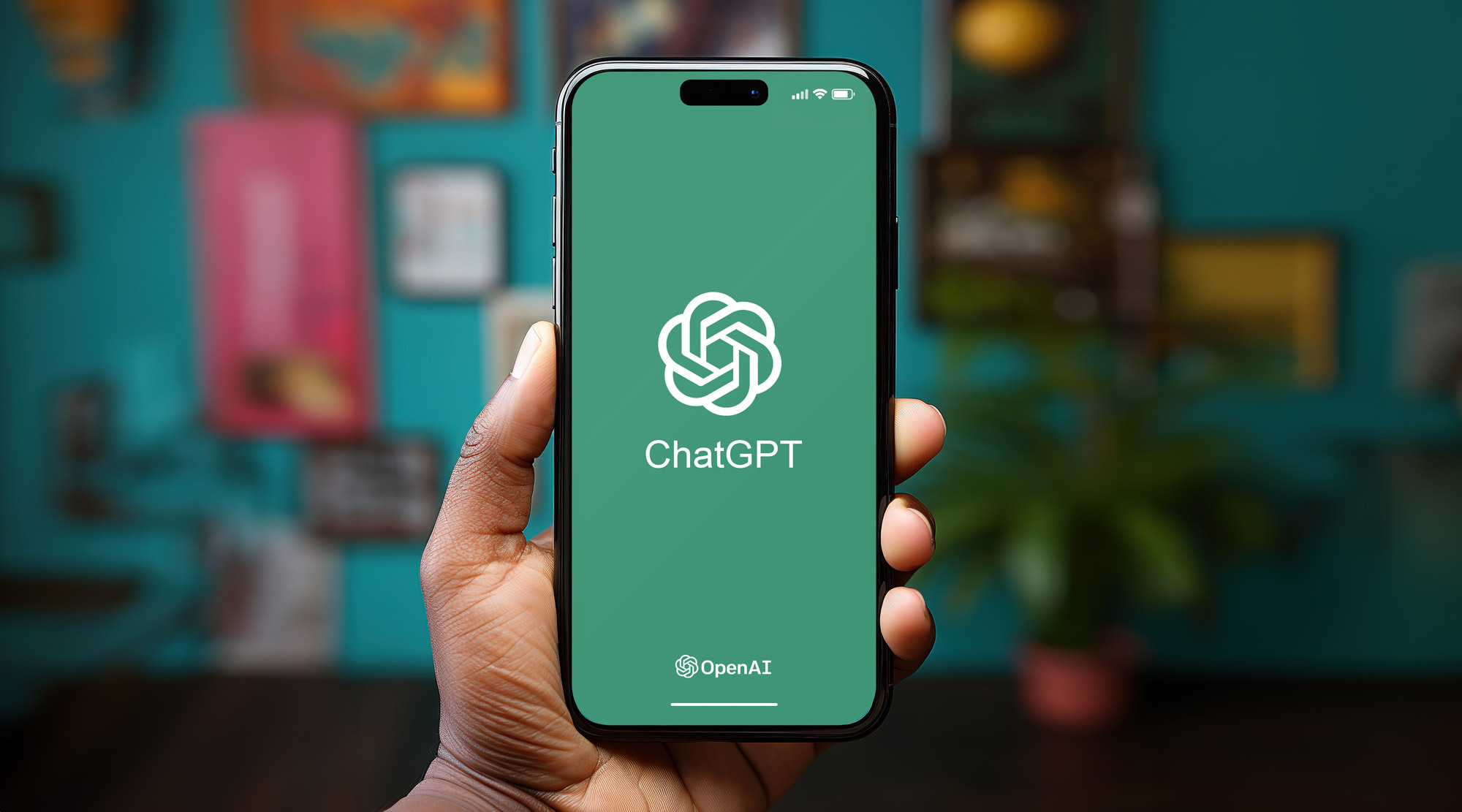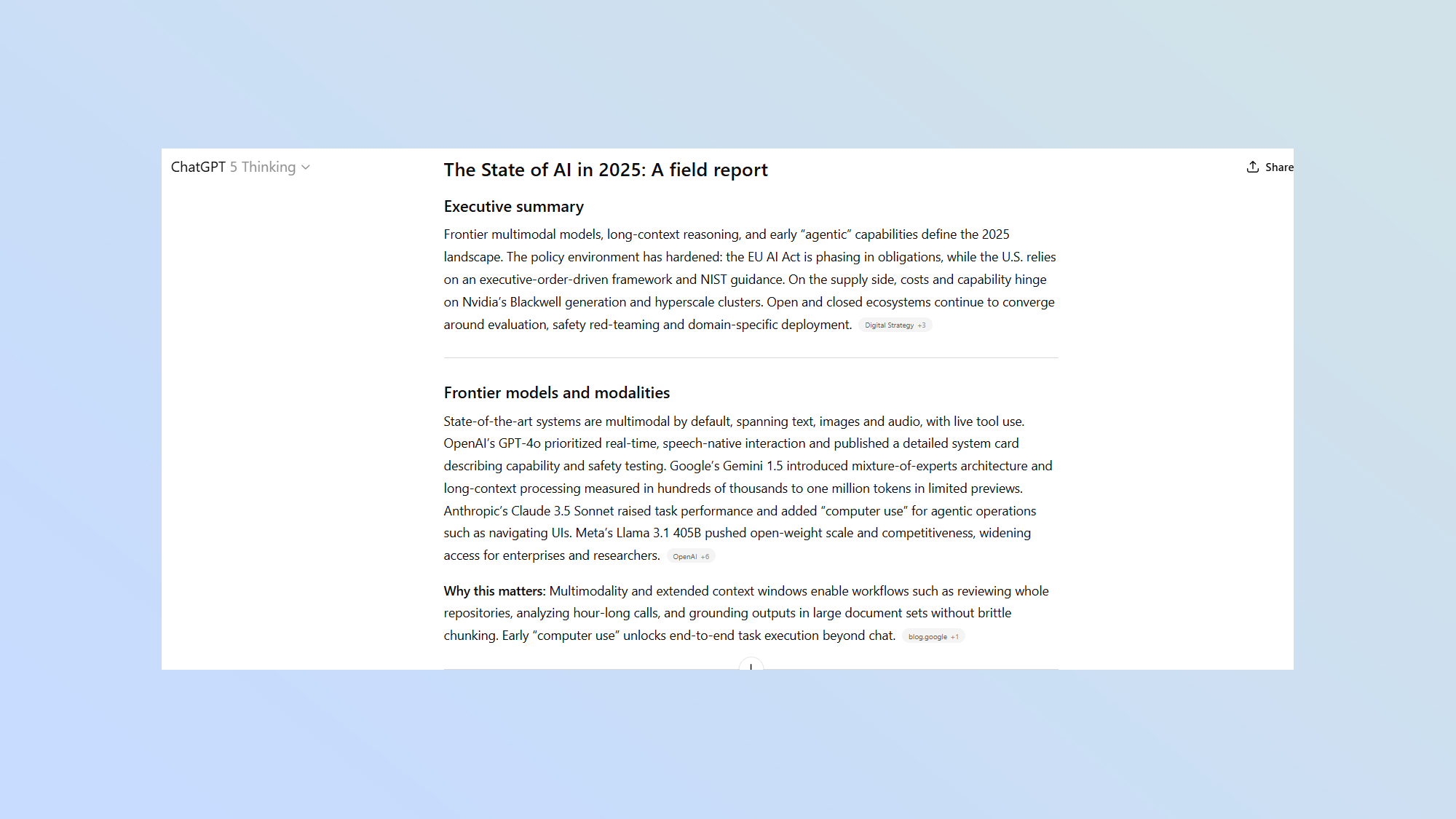I created one ChatGPT prompt that works in absolutely any situation — here's how to use it
A prompt I use for researching, writing, and more

I use ChatGPT a lot. Sometimes, this is for a quick fact check, a grammar analysis, or something that only requires a passing prompt. However, most of the time, I want something detailed, and I want the AI model to put the work in. The problem is, this takes a while to set up.
To get the most out of ChatGPT, you need to give it a lot of information, requirements, and specialized insights. This involves gathering all of the details to give ChatGPT, but also writing out a long, detailed prompt to feed into the model.
I’ve found this is starting to eat into my time, but it has also just become quite boring! Writing out a huge chunk of text every time I need a report or an analysis from ChatGPT is pretty tedious.
Instead, I asked ChatGPT to write me a master prompt. This would work in any situation and would be customisable to my needs each time I use it. The result was long, but it has since become so useful to me and has produced some incredible results.
If you want to try it out too, copy and paste the text seen below in its entirety and drop it into ChatGPT. Just make sure to edit the boxes to fit your own needs.
The prompt
YOU ARE: An expert assistant.
OBJECTIVE
Get instant access to breaking news, the hottest reviews, great deals and helpful tips.
- Goal: {what you want}
- Success: {how you’ll judge it}
CONTEXT
- Audience: {who}
- Topic: {what}
- Constraints: {word count, tone, style (AP), must/avoid}
MODE (pick as needed)
- Edit writing • Generate ideas • Teach • Plan • Research • Analyze/compare • Code • Summarize • Create content • Coach
OUTPUT CONTROLS
- Format: {bullets | steps | table | outline | code}
- Length: {brief | ~500 words | detailed}
- Include: {examples, citations, templates}
TOOLS
- If browsing/tools allowed, use them and cite. If not, note limits and assumptions.
WORKFLOW
1) If unclear, ask up to 3 precise questions. If clear, proceed and state assumptions.
2) Draft the answer.
3) QA for accuracy, logic, and style. Remove fluff.
4) Offer 3 improvement options.
INPUTS
{paste text, data, links, or “none”}
Why it works

There is a lot going on in the prompt, but it is designed to produce a really well-thought-out report, no matter what the subject is.
Simply copy and paste it into ChatGPT and fill out the boxes with the information that fits your particular needs. Compared to trying to formulate a new prompt for each query, this has saved me loads of time.
To make the most of the extra information, I make sure to select ChatGPT 5 Thinking as my model of choice for this, allowing ChatGPT to really carefully contemplate what it is being asked before proceeding.
I asked ChatGPT to look into the current state of AI, using this prompt. After a quick edit to fill in my needed settings, it went off searching the internet and came up with a report. It was fact-checked and referenced its sources.
By putting in the work in the original prompt, I also didn’t have to ask any follow-up questions as it covered everything in one go.
Is this always needed?

While this is usable in almost any situation, it can be overkill for a lot of tasks. If you just need a quick response to an easy question, this won’t be necessary.
You can also, just as easily, ask ChatGPT to write you a report on a subject and not fill all of this in. However, the benefit here is to make the model take the time to really consider what you want, taking in specific points like your target audience, depth of research, and the way you like to receive information.
This same prompt will work well on other AI models like Anthropic’s Claude or xAI’s Grok 4. Simply copy and paste it into a chatbot with advanced reasoning capabilities and give it a go.
Follow Tom's Guide on Google News and add us as a preferred source to get our up-to-date news, analysis, and reviews in your feeds. Make sure to click the Follow button!
More from Tom's Guide
- Sora 2 is now available without an invite — but only for a limited time
- I just gave ChatGPT, Gemini and Claude the same job interview — here’s who got hired
- I pitted Wikipedia against Elon Musk’s new Grokipedia — here’s which one gave the better answers

Alex is the AI editor at TomsGuide. Dialed into all things artificial intelligence in the world right now, he knows the best chatbots, the weirdest AI image generators, and the ins and outs of one of tech’s biggest topics.
Before joining the Tom’s Guide team, Alex worked for the brands TechRadar and BBC Science Focus.
He was highly commended in the Specialist Writer category at the BSME's 2023 and was part of a team to win best podcast at the BSME's 2025.
In his time as a journalist, he has covered the latest in AI and robotics, broadband deals, the potential for alien life, the science of being slapped, and just about everything in between.
When he’s not trying to wrap his head around the latest AI whitepaper, Alex pretends to be a capable runner, cook, and climber.
You must confirm your public display name before commenting
Please logout and then login again, you will then be prompted to enter your display name.
 Club Benefits
Club Benefits















